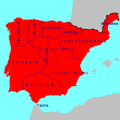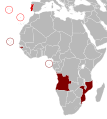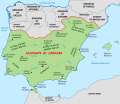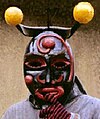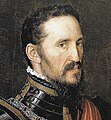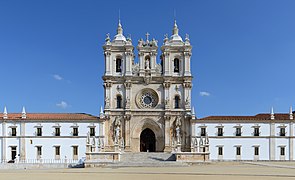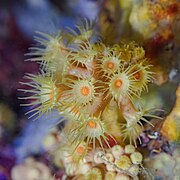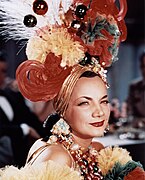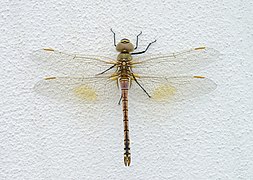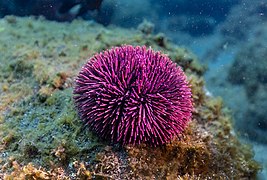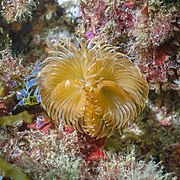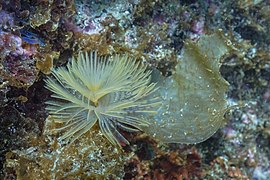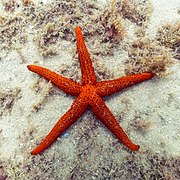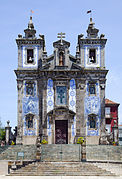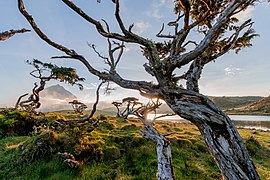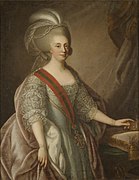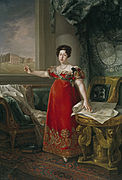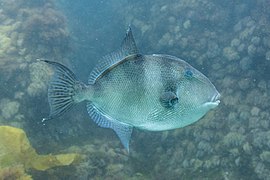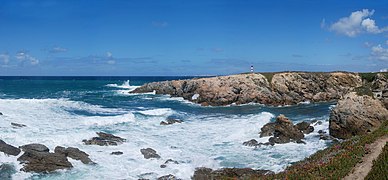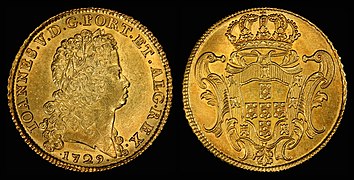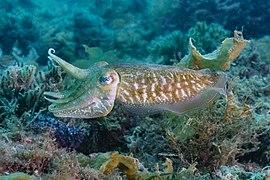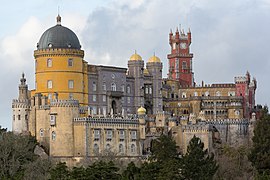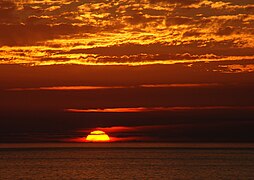Portal:Portugal
Welcome to the Portugal portal  Portugal, officially the Portuguese Republic, is a country located on the Iberian Peninsula, in Southwestern Europe, and whose territory also includes the Macaronesian archipelagos of the Azores and Madeira. It features the westernmost point in continental Europe, its mainland west and south border with the North Atlantic Ocean and in the north and east, the Portugal-Spain border constitutes the longest uninterrupted border-line in the European Union. Its archipelagos form two autonomous regions with their own regional governments. On the mainland, Alentejo region occupies the biggest area but is one of the least densely populated regions of Europe. Lisbon is the capital and largest city by population, being also the main spot for tourists alongside Porto, the Algarve and Madeira. One of the oldest countries in Europe, its territory has been continuously settled and fought over since prehistoric times. The territory was inhabited by the Celtic and Iberian peoples, such as the Lusitanians, the Gallaecians, the Celtici, Turduli, and the Conii. These peoples had some commercial and cultural contact with Phoenicians, ancient Greeks and Carthaginians. It was later ruled by the Romans, followed by the invasions of Germanic peoples together with the Alans, and later the Moors, who were eventually expelled during the Reconquista. First founded as a county within the Kingdom of León in 868, Portugal formally became an independent kingdom with the Treaty of Zamora in 1143. During the 15th and 16th centuries Portugal led the Age of Discovery and established one of the longest-lived maritime and commercial empires, becoming one of the main economic and political powers of the time. By the early 19th century, events such as the 1755 Lisbon earthquake, the country's occupation during the Napoleonic Wars, and the resulting independence of Brazil in 1822 led to a marked decay of Portugal's prior opulence. This was followed by the civil war between liberal constitutionalists and conservative absolutists over royal succession from 1828 to 1834. The 1910 revolution deposed Portugal's monarchy, and established the democratic but unstable Portuguese First Republic, later superseded by the authoritarian regimes of Ditadura Nacional (National Dictatorship) and Estado Novo (New State). Democracy was restored after the Carnation Revolution (1974), ending the Portuguese Colonial War and eventually losing its remaining colonial possessions. (Full article...) Selected article -
Prehistoric Rock Art Sites in the Côa Valley and Siega Verde are a United Nations Educational, Scientific and Cultural Organization (UNESCO) transboundary World Heritage Site, located in the Côa Valley of Portugal and Siega Verde, Spain. (Full article...)
This is a Featured article, which represents some of the best content on English Wikipedia.
Dona Maria Amélia (1 December 1831 – 4 February 1853) was a princess of the Empire of Brazil and a member of the Brazilian branch of the House of Braganza. Her parents were Emperor Dom Pedro I, the first ruler of Brazil, and Amélie of Leuchtenberg. The only child of her father's second marriage, Maria Amélia was born in France after Pedro I abdicated the Brazilian throne in favor of his son Dom Pedro II. Before Maria Amélia was a month old, Pedro I went to Portugal to restore the crown of the eldest daughter of his first marriage, Dona Maria II. He fought a successful war against his brother Miguel I, who had usurped Maria II's throne. Only a few months after his victory, Pedro I died from tuberculosis. Maria Amélia's mother took her to Portugal, where she remained for most of her life without ever visiting Brazil. The Brazilian government refused to recognize Maria Amélia as a member of Brazil's Imperial House because she was foreign-born, but when her elder half-brother Pedro II was declared of age in 1840, he successfully intervened on her behalf. (Full article...)General imagesThe following are images from various Portugal-related articles on Wikipedia.
Selected quote -"I'm not a total atheist, everyday I try to find a sign of God, but unfortunately I can't find any."
Não sou um ateu total, todos os dias tento encontrar um sinal de Deus, mas infelizmente não o encontro. This is a Good article, an article that meets a core set of high editorial standards.
Otelo Nuno Romão Saraiva de Carvalho, GCL (Portuguese pronunciation: [ɔˈtɛlu sɐˈɾajvɐ ðɨ kɐɾˈvaʎu]; 31 August 1936 – 25 July 2021) was a Portuguese military officer who was the chief strategist of the 1974 Carnation Revolution and who later became a terrorist leader. After the Revolution, Otelo assumed leadership roles in the first Portuguese Provisional Governments, alongside Vasco Gonçalves and Francisco da Costa Gomes, and as the head of military defense force COPCON. In 1976, Otelo ran in the first Portuguese presidential election, in which he placed second with the base of his support coming from the far-left. Otelo was tried and sentenced for being a leading member of the terrorist group Forças Populares 25 de Abril, which killed 19 people in several terrorist attacks. The Constitutional Court reverted the sentence due to unconstitutionality. To solve the impasse, the Portuguese Parliament voted an amnesty for political crimes in 1996. The amnesty was promoted by President Mário Soares as a gesture of democratic reconciliation as it erased the political crimes by far left and far right. He was further trialled for the assassinations, but was acquitted. Thousands paid respect at his funeral in 2021, including the president Marcelo Rebelo de Sousa, the prime-minister António Costa and the president of the parliament Eduardo Ferro Rodrigues. The parliament highlighted is role as a “liberator of Portugal”. (Full article...)Selected Biography -
Marcelo Nuno Duarte Rebelo de Sousa GColTE GCIH ComSE (Portuguese pronunciation: [mɐɾˈsɛlu ˈnunu ˈðwaɾtɨ ʁɨˈβelu ðɨ ˈsozɐ]; born in 12 December 1948) is a Portuguese politician and academic. He is the 20th and current president of Portugal, since 9 March 2016. He is a member of the Social Democratic Party, though he suspended his party membership for the duration of his presidency. Rebelo de Sousa has previously served as a government minister, parliamentarian in the Assembly of the Portuguese Republic, legal scholar, journalist, political analyst, law professor, and pundit. (Full article...)
Selected picture - A view of the 25 de Abril Bridge in Lisbon
Did you know -
Portugal topicsPortugal lists
SubcategoriesRecognized content
Featured articles
Former featured articlesFeatured listsFormer featured listsGood articles
Former good articlesDid you know? articles
Featured pictures
Former featured portalsIn the News articles
Main page featured articles
Picture of the day pictures
Featured topicsNew articlesThis list was generated from these rules. Questions and feedback are always welcome! The search is being run daily with the most recent ~14 days of results. Note: Some articles may not be relevant to this project.
Rules | Match log | Results page (for watching) | Last updated: 2024-07-02 21:41 (UTC) Note: The list display can now be customized by each user. See List display personalization for details.
Things you can doRelated PortalsRelated WikiProjects
Associated WikimediaThe following Wikimedia Foundation sister projects provide more on this subject:
Discover Wikipedia using portals |



![Image 1Maios celebration in Madeira island [1] (from Culture of Portugal)](http://upload.wikimedia.org/wikipedia/commons/thumb/e/e1/2011-03-05_03-13_Madeira_045_Santana_%285543431418%29.jpg/120px-2011-03-05_03-13_Madeira_045_Santana_%285543431418%29.jpg)


